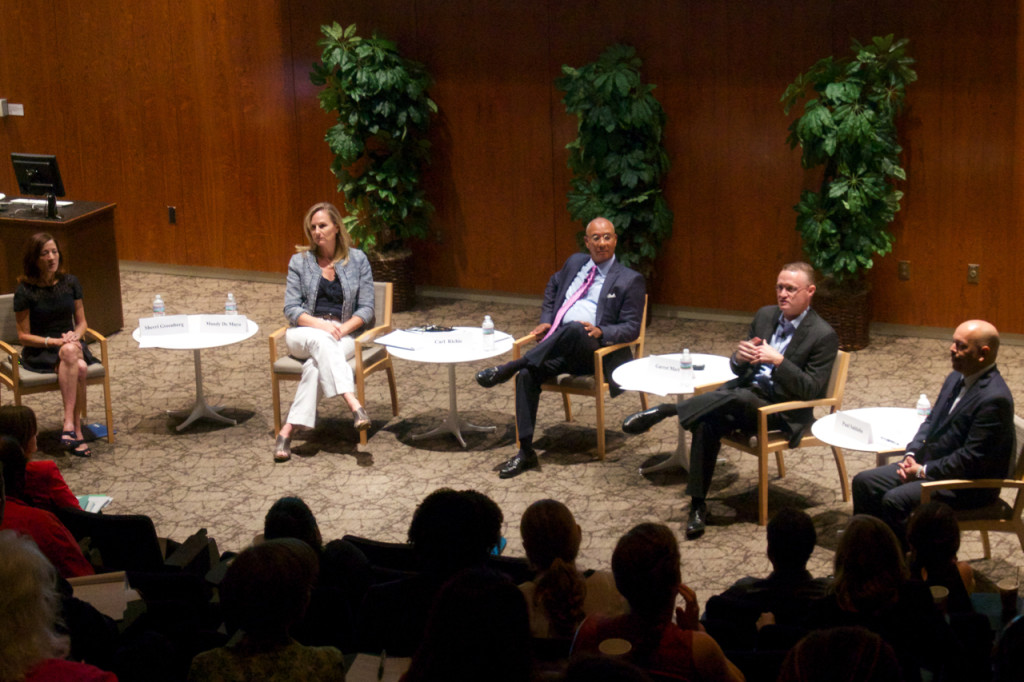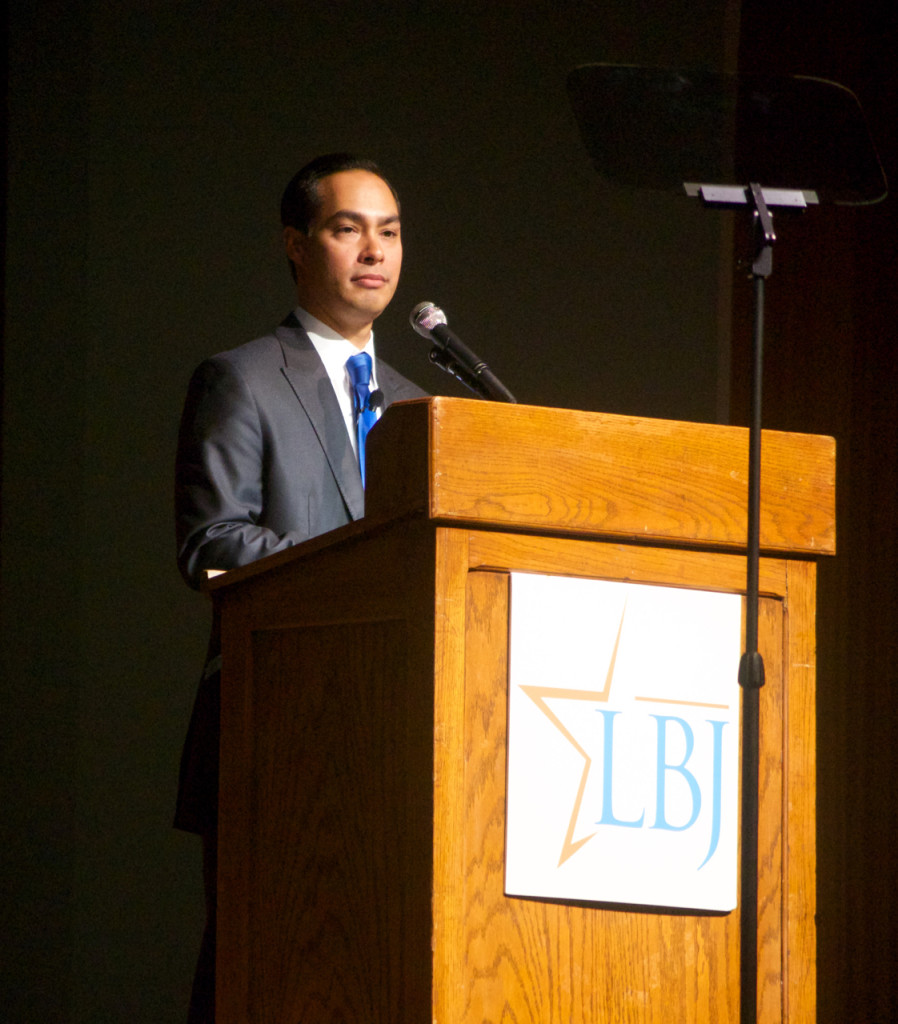 On Wednesday, September 9, exactly 50 years after the day President Lyndon Baines Johnson signed the Housing and Urban Development Act, a crowd of visitors at UT’s LBJ Library marked the accomplishments of HUD and examined the housing and development challenges Austin and other US cities are facing today. The LBJ School of Public Affairs hosted the 2015 Reimagining Cities Conference which featured two panel discussions and a keynote speech by HUD Secretary and former San Antonio mayor Julian Castro.
On Wednesday, September 9, exactly 50 years after the day President Lyndon Baines Johnson signed the Housing and Urban Development Act, a crowd of visitors at UT’s LBJ Library marked the accomplishments of HUD and examined the housing and development challenges Austin and other US cities are facing today. The LBJ School of Public Affairs hosted the 2015 Reimagining Cities Conference which featured two panel discussions and a keynote speech by HUD Secretary and former San Antonio mayor Julian Castro.
Austin Mayor Steve Adler delivered the opening address for the conference, followed by a panel discussion titled “Keep Austin Housed: Closing the Affordability Gap.” The discussion was moderated by former State Representative and LBJ School professor Sherri Greenberg. Panelists included HousingWorks Austin Executive Director Mandy De Mayo, board members from Austin’s Housing Authority and the Austin Independent School District a local builder. The Panel delved into affordable housing strategies, ways to make neighborhoods more sustainable and increasing access to good jobs and good schools. The second panel discussion “Purpose Built Communities: Changing Neighborhoods. Changing Lives” highlighted innovative community development, especially in Fort Worth and Houston.
 In his address, Secretary Castro said the creation of HUD came just a week after rioting broke out in the Los Angeles community of Watts. “Watts revealed a sad truth about the United States in 1965,” said Castro. “We were a nation that was at odds with itself. The richest nation on Earth, yet millions of people lived in squalor. Cities that soared in the post-World War II economy now suffered from poverty, aging infrastructure and a middle class that left behind the most vulnerable.”
In his address, Secretary Castro said the creation of HUD came just a week after rioting broke out in the Los Angeles community of Watts. “Watts revealed a sad truth about the United States in 1965,” said Castro. “We were a nation that was at odds with itself. The richest nation on Earth, yet millions of people lived in squalor. Cities that soared in the post-World War II economy now suffered from poverty, aging infrastructure and a middle class that left behind the most vulnerable.”
Although the idea for HUD had been a decade in the making, President Johnson signed the act that created it as part of his vision the country which he called the “Great Society.” Castro said LBJ had been deeply affected by the poverty he witnessed as a young teacher in rural Texas and he had a strong belief in the power of government to right wrongs and to help expand opportunity for all Americans. Secretary Castro said the creation of HUD deserves it’s place as one of the most important accomplishments of the Great Society.
The HUD secretary also touched on the hot-button issue of gentrification in Austin. He asked, “What are we doing for East Austinites who have lived there for generations? Can they afford the rising rents? Will they be there to experience the rebirth and revitalization of their own neighborhood?” Castro received a round of applause when he said East Austin should be revitalized for the people who have long called it home.
While Secretary Castro lauded the federal fair housing rules recently adopted to combat housing discrimination and segregation, he said there is much more that needs to be done. Castro outlined a three-pronged approach for urban revitalization—breaking down the bureaucratic barriers to development in neglected neighborhoods, improving the assessment of how well housing initiatives are performing and striking a balance between giving residents of distressed neighborhoods the ability to move into higher opportunity neighborhoods and increasing investments to bring more opportunities to distressed neighborhoods. He finished by declaring that we are all the legacy of Lyndon. The video below was shown during the HUD anniversary celebration.